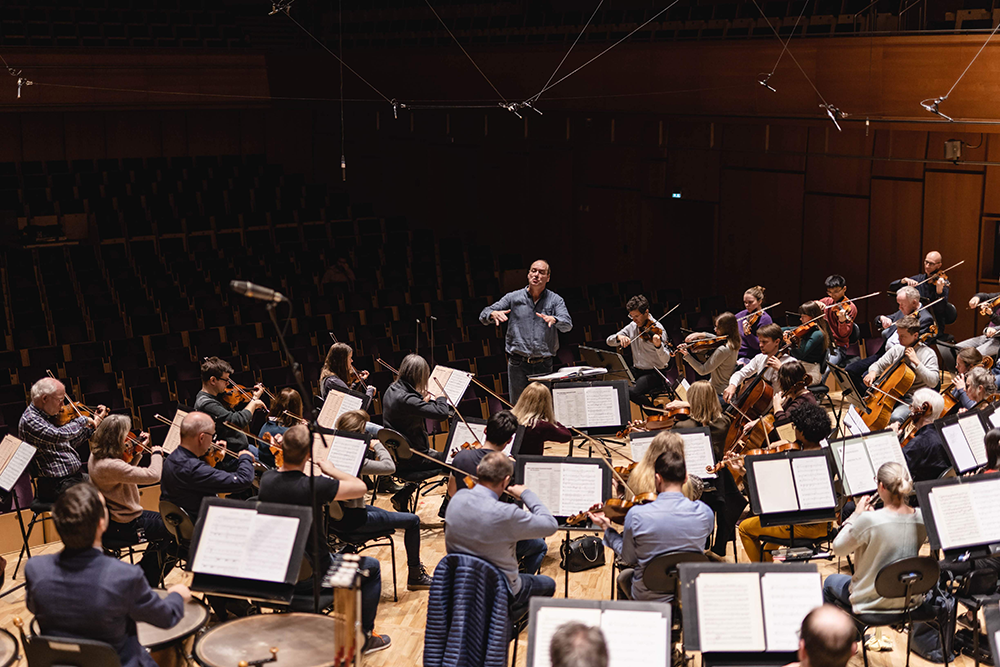Guest Conductors
Booking of Guest Conductors
If you are looking for a foolproof and guaranteed method to get a job in an orchestra, opera house or any other professional institution you may be disappointed. There is none! You simply have to work your way from the bottom up. Mentor-led programs such as fellowships and assistant conductor positions are a great way to start, and these programs may serve as a springboard to guest conductor positions.
As an orchestra’s season is not limited to concerts with the principal conductor only, orchestras complete their musical programme by inviting several guest conductors every year. This is not only because they need specialists for certain types of music, they are usually also interested in presenting a variety of conductors during the season, varying in experience and prestige as well as field of specialty, ranging from the old maestros to the young and promising. The guest conductors may be engaged for a single concert or a series of performances.
There are numerous ways to get your foot in the door to get your career moving. The first, and probably hardest step, is to get your name known and simply be visible in the industry. Orchestras usually have a wish list of conductors they prefer to use for different programs. The names for these lists can come from orchestra players (they know who they like and are not afraid to let it be known) or as a recommendation from the principal conductor. Artistic committees also have a say in this, and artist managements do a great job in promoting their clients to the orchestras.

Photo © Magdalena Hestholm, UiS
The Importance of Making a Good First Impression as a Guest Conductor
Between 2001 and 2007, a multilocal fieldwork study was conducted in three French orchestras. This was an ethnographic study within the orchestras, focusing on the interaction between the conductor and the musicians. The researchers made some very interesting observations on how the conductor’s authority is co-constructed by the conductor and the orchestra during rehearsals. For example, the initial meeting can be seen as a “power struggle” between the two. This does not necessarily involve confrontation, but “[…] a musician might pretend not to understand a foreign conductor with a heavy accent, a section might be chatting during rehearsal just to see how long the conductor will go without saying something, or a musician might ask an ingenuous question about the work just to test the conductor’s knowledge, and so on. The first rehearsal is often a sort of faceoff in which both sides test each other’s expertise and personality” (Adenot, 2015).
The study further states that establishing authority with the orchestra can be particularly difficult for guest conductors: “With their varying degrees of experience, and regardless of how long their assignment will last, they need to quickly win the approval of the orchestra, which may be tired of working with “maestros” who come and go and whose talent for conducting is, from the musicians’ perspective, variable” (Adenot, 2015).
With this in mind, we know that many orchestras perform conductor surveys after every single series of concerts where the musicians get to evaluate all aspects of the conductor’s performance. They may comment on everything from your basic technique, how you smell, if you are optimistic or seem depressed, if you talk too much or too little, and perhaps most importantly how you talk to the orchestra. The results of the surveys will in some orchestras play a vital role in whether or not you “move up or down on their list” of preferred conductors. If one or two musicians do not like you, it will most likely not affect your chance to be re-hired. But the general impression you make on the musicians will be communicated to the decision-makers in the administration, and this may affect your reputation – both in good ways, or bad, if you are unlucky.
Pauline Adenot’s full article “The orchestra conductor – From the authority figure to negotiated order in a vocational profession” has been made public through OpenEdition Journals and can be read in its entirety here.
In this video, conductor and percussionist Bastien Ricquebourg of Stavanger Symphony Orchestra talks about the (guest) conductor’s role in the orchestra and technique versus artistry. Bastien has been a permanent member of Stavanger Symphony Orchestra since 2009 as a co-principal percussionist/timpanist and is Deputy Head of Percussion at the University of Stavanger.